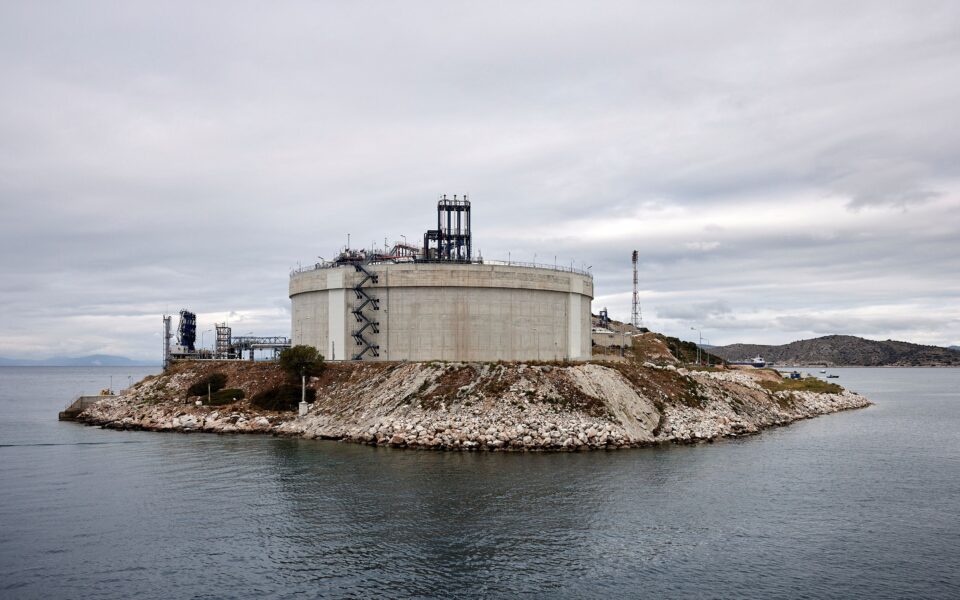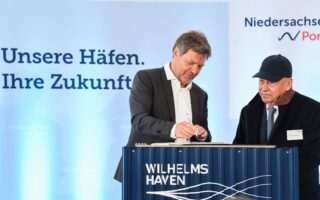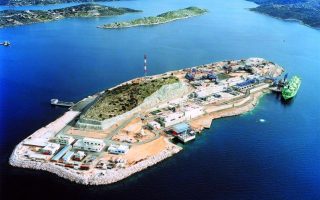Revithoussa gas keeping Bulgaria afloat

The liquefied natural gas terminal at Revithoussa, an islet west of Athens, and the increased LNG loads arriving at its facilities have been sustaining the Bulgarian market since April 27, when Gazprom turned of the tap, depriving it of 90% of its natural gas needs. However, it is now receiving quantities to the tune of 90,000-100,000 megawatt hours of natural gas through Greece. Of these quantities, 10,000 MWh is Azeri gas, which Bulgaria is receiving through the Trans Adriatic Pipeline and the existing Greek-Bulgarian pipeline.
The rest of the gas is transported to Bulgaria by Mytilineos, the Public Gas Corporation of Greece (DEPA) and the Hungarian company MET, utilizing the Revithoussa LNG Terminal, which provides them with the flexibility of additional markets for exports at a time when the spot market is finding plenty of gas as demand from China is reduced. At the same time traders are rushing to unload cargoes, fearing an impending recession.
Since May, in fact, some of the LNG that has been arriving in Revithoussa from the US, Qatar, Algeria and other producer countries has been going through Bulgaria and Romania, covering a small percentage of their needs.
According to the planning of Greece’s gas transmission system operator, DESFA, for June, the already increased LNG imports at Revithoussa are expected to double compared to May, to help provide fuel for the markets of Bulgaria and Romania.
Two ships have already unloaded on behalf of PPC and Mytilineos in May, while two more – one of MET and one of Mytilineos – are expected, which will add a total of about 2.5 million MWh to the system.
What’s more, seven shipments are scheduled for June – two from Elpedison, two from MET, two from DEPA and one from Mytilineos – to the tune of some 5 million MWh – double that of May.
According to market players, the increased quantities will replace Russian gas, the flow of which will be zero to Greece between June 21 and 27, when Gazprom has scheduled maintenance work on part of the TurkStream pipeline.





